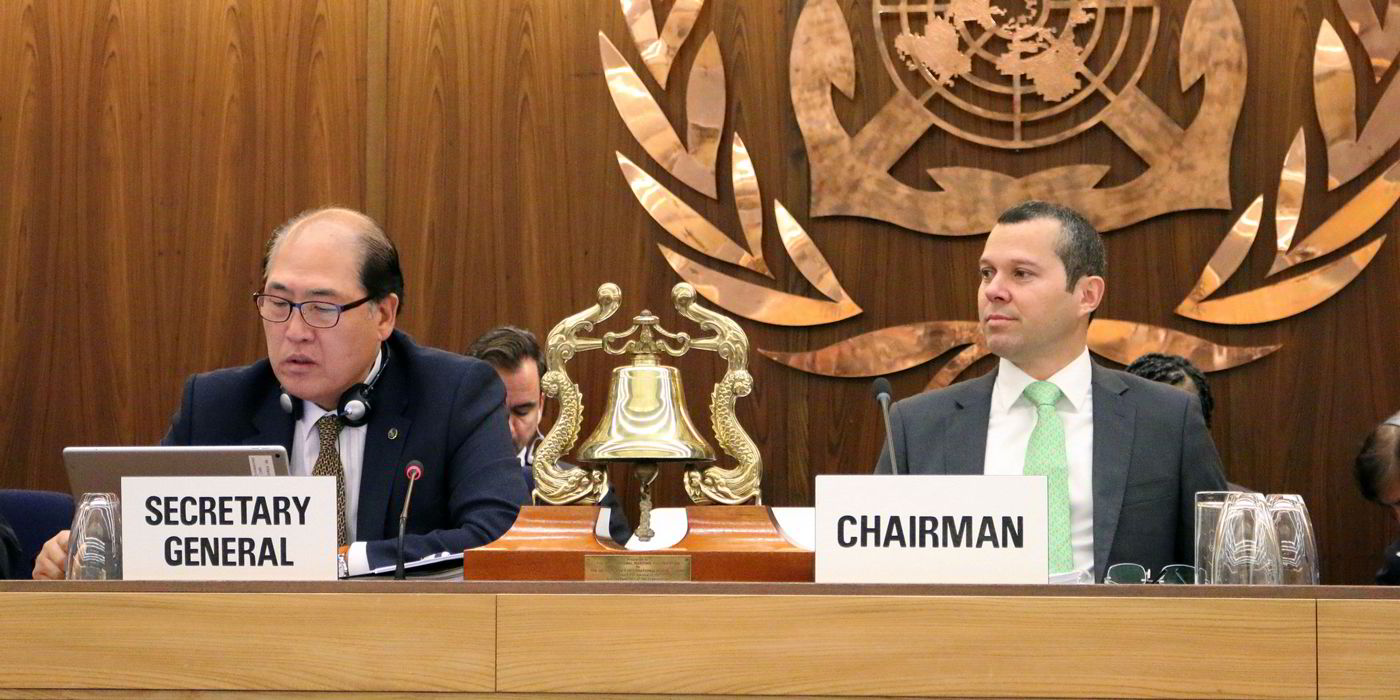The International Maritime Organisation’s (IMO) decision to impose a sulphur cap on ship emissions now falls to the shipping industry to implement. While shipowners and operators welcome efforts to clean up the industry’s environmental record, both groups are concerned about whether low-sulphur fuel will be available in sufficient quantities.
The just announced requirement for marine fuel to meet a 0.5% sulphur content standard by 2020 was a major topic at the Thursday meeting of the North American Marine Environment Protection Association Meeting (NAMEPA), a trade group focused on shipping’s environmental impact.
In a panel discussion on corporate social responsibility, Jan-Willem van den Dijssel, Cargill’s director for ocean transportation in the Americas, said the company, one of the largest charterers in the world, is looking to ensure that its supply chain complies with any regulations.
Cargill is already shifting its chartering strategy to use only the most energy-efficient ships available in the market, van den Dijssel says. As such, most of the roughly 500 ships that Cargill charters in will be able to meet the new standard.
But van den Dijssel admits there will be added costs to shipping. Currently, there is a $200 per ton spread between the cost of low-sulphur marine fuel and high-sulphur marine fuel.
“It’s going to be a cost and compliance issue,” van den Dijssel told the audience. “It will work for most ships. But this is a major worldwide development for the commercial fleet.”
The main concern is fuel availability, van den Dijssel says. He says it’s unclear as yet whether there will be adequate supplies of such fuel available in time to meet the IMO’s deadline.
Nicky Pappadakis, vice chairman of dry bulk trade group Intercargo, had a similar reaction to the IMO’s decision, saying that availability of 0.5% fuel is a concern.
“They have regulated that we use a fuel that doesn’t exist,” Pappadakis said.
The added costs of low-sulphur fuel may tip more owners to decide to scrap a ship or install a scrubber to eliminate the sulphur, according to a UBS report.
Pappadakis echoed the view that owners will be doing a calculus over the next three years on the merits of scrapping versus installing a scrubber versus using low-sulphur fuel.
“Some owners may scrap,” Pappadakis said.



